<< Previous | Displaying results 701-710 of 6809 for "" | Next >>
One of seven children, Sarah was raised in a Yiddish-speaking, religious Jewish home in Sokolow Podlaski, a manufacturing town in central Poland with a large Jewish population of some 5,000. Sarah's parents ran a grain business. In 1930, Sarah began attending public elementary school in Sokolow Podlaski. 1933-39: After graduating from middle school in 1937 at the age of 14, Sarah helped out her now widowed mother in the family's grain business. Two years later, Germany attacked Poland. German aircraft…
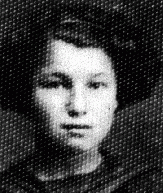
One of six children, Chinka was raised in a Yiddish-speaking, religious Jewish family in the town of Ostrow Mazowiecka, where her father was a wine maker. In 1910 she married Ephraim Isaac Felman, and a few years later the couple moved to Sokolow Podlaski, where Chinka helped her husband run a grain business. The Felmans had seven children, two of whom died in infancy. 1933-39: Chinka's husband died in 1935, and she took over the grain business with the help of her children. That same year, her oldest…
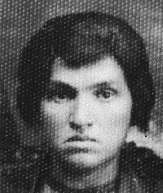
Fischel was the oldest of seven children in a Yiddish-speaking, religious Jewish family. When he was a small child, his parents moved the family to Sokolow Podlaski, a manufacturing town in central Poland with a large Jewish population of about 5,000. Fischel was sent to study at a religious school. In 1932, when he was 21 years old, Fischel was inducted into the Polish army. 1933-39: After two years in the Polish cavalry, Fischel returned to Sokolow Podlaski, where he apprenticed to become a carpenter…
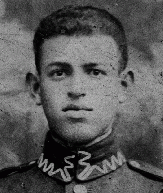
The youngest of seven children, Moishe was raised in a Yiddish-speaking, religious Jewish home in Sokolow Podlaski, a manufacturing town in central Poland with a large Jewish population of some 5,000. Moishe's parents ran a grain business. Moishe attended a Jewish school and began public school in Sokolow Podlaski in 1933. 1933-39: Summer vacation had just finished and 13-year-old Moishe was about to begin another year at elementary school when the Germans invaded Poland on September 1, 1939. German…
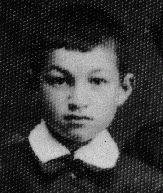
Genya and her brother, Nahum, were raised by Jewish parents in Lodz, Poland's second-largest city and an industrial center. Before the war, one-third of Lodz's inhabitants were Jewish. Genya's parents placed emphasis on their children's education. 1933-39: In 1939, when Genya was 9, the Germans occupied Lodz. After that, it was forbidden for "Jews, Gypsies and dogs" to be in public places. Since Jews weren't allowed to go to school, her parents arranged to tutor her secretly at home, but she couldn't keep…
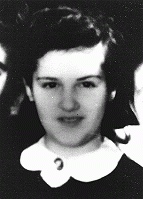
Adela, known as Udl to her family, was one of four children born to a Jewish family in the Polish town of Ulanow. Her father was a landowner and cattle merchant, transporting calves from the Ulanow area for sale in other towns in the region. From the age of 3, Adela attended a private religious school for girls where she learned Jewish history and Hebrew. At age 7 she began public school. 1933-39: Adela came from a charitable family; when her mother baked challah, a special bread for the Jewish Sabbath,…
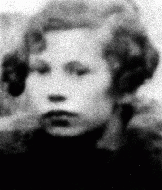
Dezider was the oldest of three children born to Hungarian-speaking Jewish parents in the city of Kosice in the southeastern part of Czechoslovakia known as Slovakia. As a young boy, he attended a Jewish elementary school. His father was a tailor whose workshop was in the Gruenberger's small apartment. 1933-39: After Dezider finished elementary school, he entered secondary school with a view to going on to the university. The language of instruction was Slovak, and Jews faced no discrimination until…
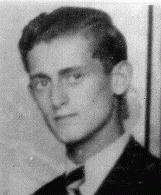
Edit was the second of three children born to Hungarian-speaking Jewish parents in the city of Kosice in the southeastern part of Czechoslovakia known as Slovakia. She grew up a Czechoslovak citizen. As a young girl, she attended a Jewish elementary school. Her father was a tailor whose workshop was in the Gruenbergers' apartment. 1933-39: After Edit finished elementary school, she entered secondary school. The language of instruction was Slovak and Jews faced no discrimination until November 1938 when…
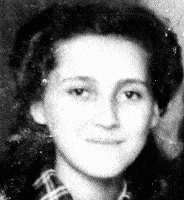
Herschel was the oldest of four children born to a Jewish family in the Polish town of Ulanow. His father was a landowner and cattle merchant who transported calves from the Ulanow area for sale in other towns. Herschel attended a religious school from the age of 3, and started public school at age 7. 1933-39: Since Herschel was skilled with his hands, his father got him a job weaving reed baskets after he graduated from high school. Herschel was also a member of a Jewish youth organization, Benei Akiva,…
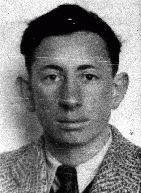
Raised by Yiddish-speaking, religious Jewish parents in the town of Pultusk in central Poland, Shmuel married in the late 1890s and moved with his wife, Gisha, to the city of Warsaw. Shmuel owned and operated a bakery on Zamenhofa Street. In 1920 the Bursztyns and their eight children moved to larger quarters in a two-bedroom apartment at 47 Mila Street in the Jewish section of the city. 1933-39: By 1939 six of Shmuel's children were grown and on their own. Only his youngest son and daughter still lived…
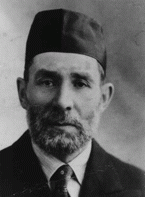
We would like to thank Crown Family Philanthropies, Abe and Ida Cooper Foundation, the Claims Conference, EVZ, and BMF for supporting the ongoing work to create content and resources for the Holocaust Encyclopedia. View the list of donor acknowledgement.